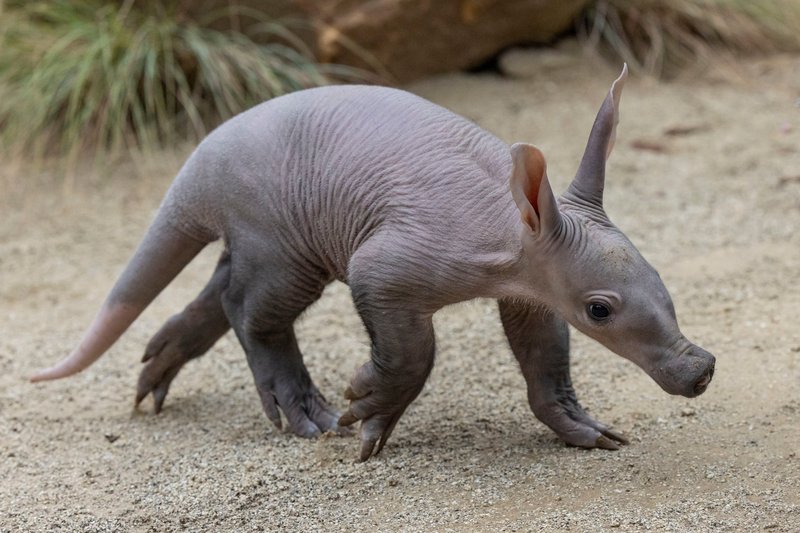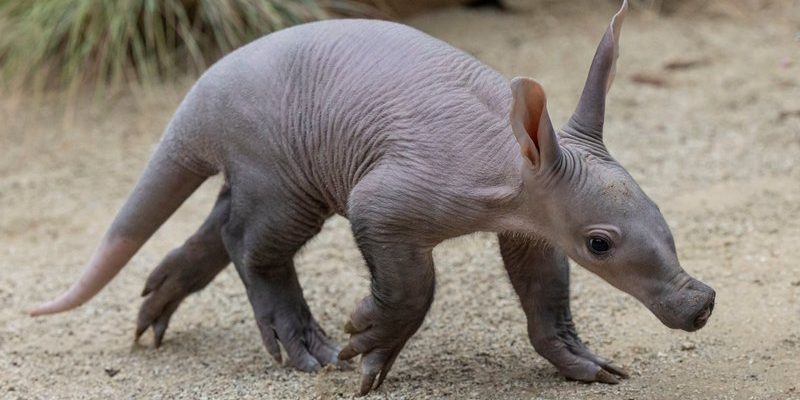
Aardvarks are often misunderstood. Some might think they just dig for ants and termites, but there’s so much more to their life. Understanding their intelligence can give us insight into their survival strategies and unique behaviors. So, let’s dive in and explore the world of aardvarks and determine just how smart these fascinating creatures really are!
Aardvark Overview: The Basics
To appreciate an aardvark’s intelligence, it’s essential to know a bit about them first. Aardvarks are nocturnal mammals that are native to Africa. They have a distinct, pig-like body, large ears, and that famous long snout. While they might look a bit unusual, these features are perfectly designed for their lifestyle.
Digging plays a crucial role in an aardvark’s life. They use their powerful claws to dig deep into the ground, searching for tasty treats like termites and ants. Their snout helps them sniff out these insects buried in the soil. This unique combination of features not only aids in their feeding habits but also highlights their ability to adapt to their environment.
Understanding Aardvark Intelligence
So, how smart is an aardvark? Well, their intelligence can be seen in how they solve problems in the wild. Research shows that aardvarks can learn from their experiences, just like we do. For instance, if they encounter a challenging spot while foraging, they can remember that and find a better way next time.
You might be wondering how this intelligence helps them survive. Aardvarks must constantly adapt to changes in their environment, like finding new food sources or avoiding predators. Their ability to learn means they can make smarter choices about where to dig or when to be active in order to stay safe.
Social Behavior: A Unique Perspective
When talking about intelligence, it’s not only about problem-solving. Social behavior plays a big role, too. Aardvarks are generally solitary creatures, meaning they prefer to live alone or with their young. However, they do interact with others during mating season. Their social skills can be seen in how they communicate by marking their territory and using scent trails.
Interestingly, while they might not be social butterflies, their solitary existence doesn’t mean they lack awareness of their surroundings. They have a great sense of smell and hearing to detect predators or potential mates. This heightened sense allows them to navigate their environment effectively, showing a different kind of intelligence.
Memory and Learning Abilities
Memory is a significant aspect of intelligence that we often overlook. Research indicates that aardvarks have good spatial memory, allowing them to remember where they’ve previously found food. This is helpful, especially since they may revisit areas that provide a reliable food source.
Imagine walking your favorite path in the park; you remember where the best benches are or where to find the most beautiful flowers. Aardvarks do something similar with their foraging routes. They learn which areas are rich in food, allowing them to maximize their efforts when searching for dinner. Their memory isn’t just about food, either; it helps them avoid danger and find safe places to rest.
Adaptability in Aardvarks
Adaptability is another mark of intelligence, and aardvarks excel in this area. In the wild, they face various challenges—be it shifts in climate, food availability, or threats from predators. Aardvarks respond to these challenges creatively. For example, if an area becomes too dangerous, they will explore new territories to find safer spots for their nighttime activities.
You might think of adaptability like adjusting to a new routine. Just as we might tweak our schedules to fit new life changes, aardvarks can change their foraging habits or locations based on what’s available and safe. This ability to pivot shows a cleverness that’s often underestimated.
Unique Hunting Techniques
When it comes to food, aardvarks have developed some pretty smart techniques. They primarily feed on ants and termites, but their hunting strategy is quite interesting. They use their sense of smell to locate ant mounds or termite colonies and then dig with precision.
What’s more, aardvarks often return to the same spots after a while, as they know where food sources are likely to be abundant. They might not be working with tools like us, but their use of their own bodies and instincts demonstrates a unique form of intelligence in hunting.
The Role of Aardvarks in Ecosystems
Lastly, let’s talk about the bigger picture. Aardvarks play a crucial role in their ecosystems. By digging into the ground, they aerate the soil, allowing nutrients to flow and benefiting other plants and animals. Their feeding habits help control ant and termite populations, making them vital for balance in their environment.
This ecological intelligence isn’t just about survival—it’s about how they contribute to their habitat. Their actions help maintain a diverse ecosystem, showcasing how intelligent behavior can impact the world around them.
When it comes to asking how smart an aardvark is, the answer is pretty impressive. From their clever problem-solving skills to their adaptability in different environments, these unique creatures showcase a form of intelligence that’s often overlooked.
So, the next time you see an aardvark or read about one, remember that there’s more to this animal than meets the eye. They have their own strategies for survival, communication, and even their role in the ecosystem—all clues to their intelligence. Understanding aardvarks helps us appreciate the amazing diversity of life and the many ways creatures can be smart.

